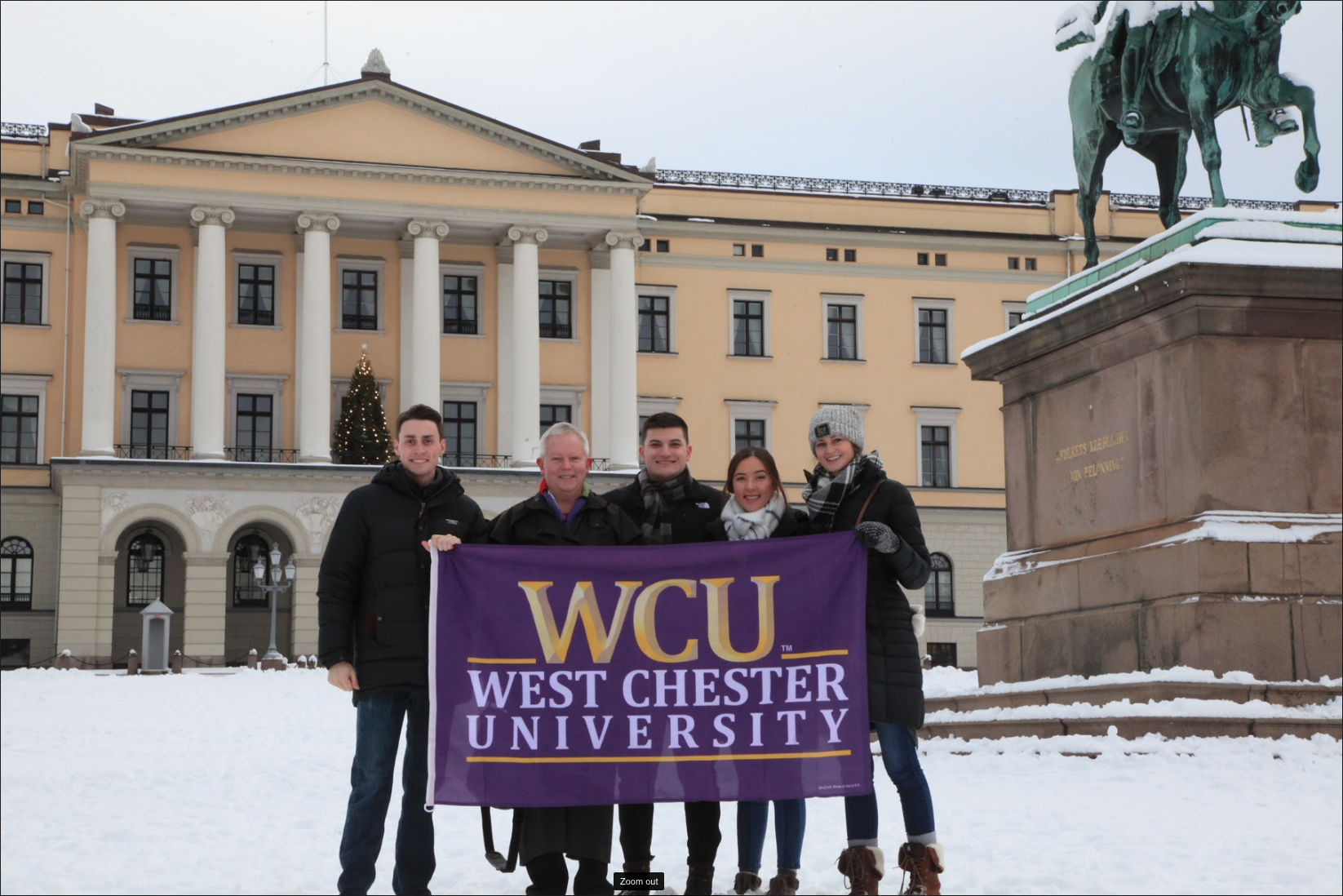Photo courtesy of Mark Gutierrez.
In 1935, during the rise in power of the Nazi party, Carl von Ossietzky—editor of a dissident newspaper in Germany — published a piece about the secret German rearmament, enraging the conservative parties of Western Europe. For his actions, the Nobel Peace Committee awarded him the 1935 prize; because of the severe controversy around this award, two committee members (politicians in the Norwegian parliament) resigned. The King of Norway distanced himself from the ceremony. Conservative papers across Norway decried Ossietzky and the Nobel Peace Committee, stating that, “Lasting peace between peoples and nations can only be achieved by respecting the existing laws.”
For Asle Toje, youngest member of today’s Nobel Peace Committee, this was the proudest moment for the prize, a time when the committee actively endangered itself for the greater good and honored someone who used their place of power to “pay the ultimate price.” Ossietzky’s story also served as the introduction to Toje’s lecture at the Business and Public Management Building on Feb. 15.
As the second member of the five-person Nobel Peace Committee to visit the campus during this academic year, Toje’s spoken themes served as a complement to the previous visit by Dr. Henrik Syse. While Syse discussed ideals and hopes relating to the prize, Toje’s interpersonal approach to his lecture focused on the people surrounding the prize — the specialists who help conduct research on candidates, the laureates and Alfred Nobel himself.
A full lecture hall of students, alumni and faculty listened closely as Toje told tales of meeting Malala and the Dalai Lama.
One of his persistent themes: how winning the award can, at times, be a burden for the laureate. In the case of Malala, Toje was happy to see that, off-stage and out of the public eye, she could still keep remnants of her life as a “shy 17-year-old.”
Another story he shared was on one of 2018’s laureates, Denis Mukwege Mukengere, a Congolese gynecologist who specializes in the treatment of women who were victims of rape as a weapon of war. Due to the oppositional attitude of his surgeries, Mukengere’s work puts his life at risk. One time, on his way to church on a Sunday, Mukengere took a detour to perform last-minute surgery on another victim. That surgery, perhaps, saved his life, as armed soldiers waited outside his typical church on that day. Toje emphasized the idea that oftentimes, the laureates continue their work despite the direct endangerment of their lives.
Through all of his stories, Toje still carried himself with a humble attitude. “As the youngest member of the committee … I’m still the one to grab the sandwiches and coffee.”
After his official lecture finished, he opened up to an open forum with the audience, stating that “West Chester students have far better questions than I have lectures.”
Aislinn Tobin, first-year political science major, asked how Toje believes the Nobel prize might affect international policy change.
“The prize does not create peace…we are mostly a thumb on the scale,” responded Toje.
When asked about what aspect of the United States Toje might want to draw more attention to and fix, the Nobel Committee member was quick to reference the education system as “failing the United States,” a statement related closely to West Chester.
Toje ended the lecture with a statement on the student body.
“The quality of the students [at West Chester University] is amazing…you’re lucky to be here.”
Max James is a fourth-year student majoring in communication studies with minors in French and creative writing. MJ853459@wcupa.edu

